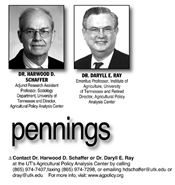Need A More Fool-Proof Way To Prevent E. Coli Contamination Of Leafy Greens

One of the recurring issues in the area of food safety is the presence of Shiga-Toxin-Producing E. Coli (STEC) in the food supply. In an October 2020 article in the Emerging Infectious Diseases Journal (https://wwwnc.cdc.gov/eid/article/26/10/19-1418_article) the authors “identified 40 outbreaks, 1,212 illnesses, 77 cases of hemolytic uremic syndrome, and 8 deaths” attributable to STEC outbreaks linked to leafy greens during 2009–2018 period in the United States and Canada” (Note: Canada imports most of their leafy greens from the US).
According to an April 6, 2021 press statement by Frank Yiannis, Deputy Commissioner for Food Policy Response – Food and Drug Administration, concerning illness attributable the STEC outbreak in the fall of 2020 that was linked to the consumption of leafy greens from the Central Coast growing area “Cattle have been repeatedly demonstrated to be a persistent source of pathogenic E. coli, including E. coli O157:H7,” a STEC.”
Three decades ago, STEC-related deaths were primarily attributable to the failure of businesses and consumers to fully cook ground beef products. Because of changes in the processing of beef carcasses by meat packers and the awareness of consumers and restaurant operators of the need to fully cook hamburgers – the authors remember, in the 1960s, eating major chain thin hamburgers that were rare in the middle – to kill any E. coli that might be present in the ground beef.
Since at least 2017, concern has shifted to the presence of STECs on the surface of leafy greens, particularly Romain lettuce. In his statement Yiannis noted that “the FDA recommends that growers of leafy greens in the California Central Coast Growing Region consider this reoccurring E. coli strain a reasonably foreseeable hazard, and specifically of concern in the South Monterey County area of the Salinas Valley. It is important to note that farms covered by the Food Safety Modernization Act (FSMA) Produce Safety Rule (https://tinyurl.com/pkvvj59a) are required to implement science and risk-based preventive measures in the rule, which includes practices that prevent the introduction of known or reasonably foreseeable hazards into or onto produce.”
As economists, we want to use an economic concept to analyze what is being asked of the growers of leafy greens.
The presence of E. coli O157:H7 in the California Central Coast Growing Region is the result of cattle production on neighboring farms, but the rules to prevent the contamination of leafy greens by STEC are imposed on the growers of these greens, not the cattle producers that are the source of the contamination.
In economics, we call that an externality – a cost that is not borne by the producer of a product. In this case the cattle producers are not being asked to bear the cost it would take to control the release of STEC into the air and water or otherwise ensure that their animals are free of STEC.
As consumers we understand that in the short-run the growers of leafy greens have little choice but to implement measures to ensure that the water they use to grow their crops and the water they use to wash the leafy greens are free from STECs. They need to implement a washing process that will remove any dust-borne STEC that falls onto their crop.
But the actions of the growers of greens should not release the cattle growers from their responsibility to eliminate the impact of STECs on their crop growing neighbors. It seems to us, that at a minimum, the USDA and the FDA need to be working with cattle growers to reduce the presence of STECs in the US cattle herd. Is there a vaccine that can be used/developed to eliminate STEC from the gut of the animal? Should cattle growers be required to test all the animals they bring into the area?
While the quick fix can be implemented by the growers of greens, at some expense to them and us as consumers, in the long-run we need to find ways to eliminate STECs from the US cattle herd, thus making everyone a little safer. ∆
DR. HARWOOD D. SCHAFFER: Adjunct Research Assistant Professor, Sociology Department, University of Tennessee and Director, Agricultural Policy Analysis Center
DR. DARYLL E. RAY: Emeritus Professor, Institute of Agriculture, University of Tennessee and Retired Director, Agricultural Policy Analysis Center